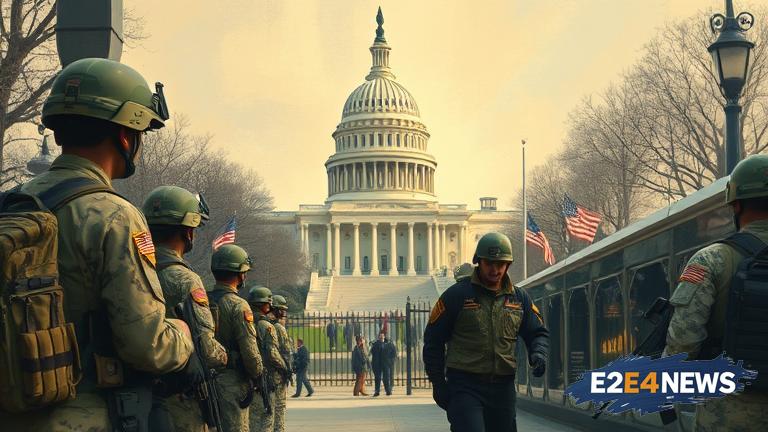The recent deployment of the National Guard in Washington D.C. has raised eyebrows, with many wondering about the financial implications of such a move. As the nation’s capital, D.C. is no stranger to military presence, but the latest deployment has sparked a heated debate about the costs and benefits. According to reports, the deployment is expected to cost taxpayers millions of dollars, with some estimates suggesting that the total bill could exceed $10 million. The National Guard has been deployed to D.C. on several occasions in the past, but the current deployment is notable for its scale and duration. With thousands of troops stationed in the city, the costs of housing, feeding, and equipping them are likely to be substantial. Furthermore, the deployment has also raised concerns about the impact on local businesses and residents, who may be affected by the increased military presence. Some have argued that the deployment is necessary to maintain order and security in the city, while others have questioned the need for such a large-scale military presence. As the debate continues, lawmakers are calling for greater transparency and accountability in the deployment process. The cost of the deployment is not just financial, but also has implications for the city’s infrastructure and resources. With the National Guard taking up valuable space and resources, some have raised concerns about the impact on local services and amenities. Despite these concerns, the deployment has also been praised for its potential to enhance security and stability in the city. The National Guard has a long history of serving in D.C., and many see their presence as a necessary evil in maintaining order and protecting the city’s residents. However, others have argued that the deployment is a symptom of a larger problem, namely the lack of investment in community programs and social services. As the city struggles to balance its budget and prioritize its spending, the cost of the National Guard deployment is likely to be a major point of contention. In recent years, D.C. has faced numerous challenges, from rising crime rates to economic inequality, and some have argued that the deployment is a distraction from these more pressing issues. Nevertheless, the deployment has also been seen as an opportunity for the city to showcase its resilience and adaptability. With the National Guard on the ground, the city is likely to see an increase in economic activity, as troops and support staff spend money on local goods and services. The deployment has also highlighted the importance of community engagement and outreach, as local residents and businesses work to build relationships with the National Guard and support their efforts. As the deployment continues, it is likely that we will see a range of initiatives and programs aimed at promoting community cohesion and understanding. From cultural events to job training programs, the city is likely to see a range of activities designed to foster greater cooperation and collaboration between the National Guard and local residents. Despite the challenges and controversies surrounding the deployment, many see it as a necessary step in maintaining the city’s safety and security. As the nation’s capital, D.C. is a high-profile target for potential threats, and the National Guard’s presence is seen as a vital component of the city’s defense strategy. The deployment has also raised questions about the role of the military in urban areas, and the balance between security and civil liberties. As the city navigates these complex issues, it is likely that we will see a range of debates and discussions about the future of the National Guard in D.C. and beyond. In conclusion, the deployment of the National Guard in D.C. is a complex and multifaceted issue, with implications for the city’s finances, infrastructure, and community. While there are valid concerns about the costs and impact of the deployment, it is also clear that the National Guard plays a vital role in maintaining the city’s safety and security. As the deployment continues, it is likely that we will see a range of initiatives and programs aimed at promoting community cohesion and understanding, and addressing the challenges and controversies surrounding the deployment.
